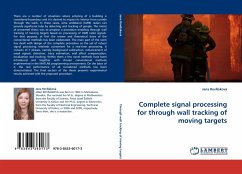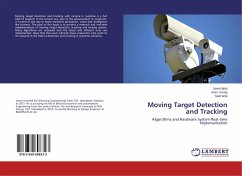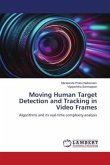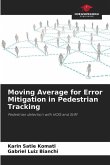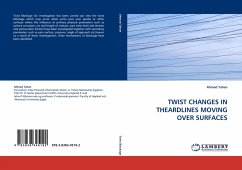There are a number of situations where entering of a building is considered hazardous and it is desired to inspect its interior from outside through the walls. In these cases, ultra wideband (UWB) radars can provide significant help by detecting and tracking of people. The intent of presented thesis was to propose a procedure enabling through wall tracking of moving targets based on processing of UWB radar signals. For that purpose, at first the review and theoretical basis of the conventional methods has been elaborated. The main part of the work has dealt with design of the complete procedure as the set of robust signal processing methods convenient for a real-time processing. It consists of 7 phases, namely background subtraction, enhancement of weak signals, detection, trace estimation, wall effect compensation, localization and tracking. Within them a few novel methods have been introduced and together with chosen conventional methods implemented in the MATLAB programming environment. On the basis of it, the real performance of all considered methods has been demonstrated. The final section of the thesis presents experimental results achieved with the proposed procedure.
Bitte wählen Sie Ihr Anliegen aus.
Rechnungen
Retourenschein anfordern
Bestellstatus
Storno

